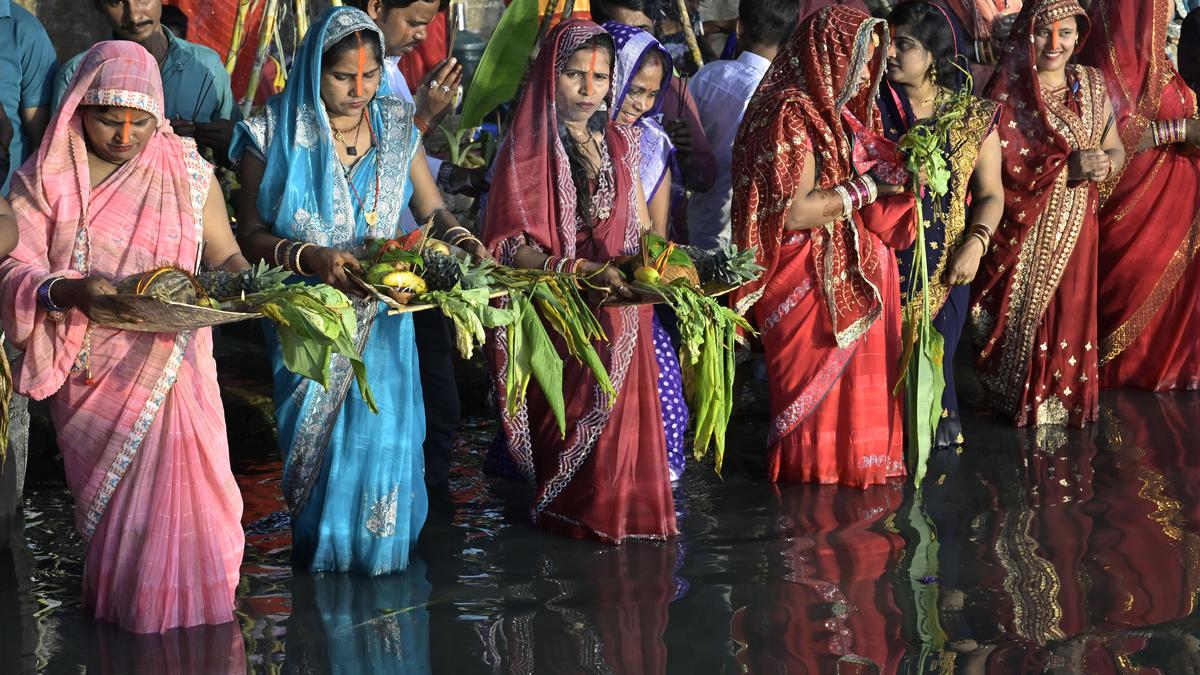Copyright thehindu

The soulful voice of Sharda Sinha, also called the ‘Nightingale of Bihar’, reverberated across the banks of Hussainsagar and several other locations in Hyderabad on Monday as the city marked Chhath Puja. Lakhs of devotees — natives of Bihar, Uttar Pradesh, Jharkhand and parts of West Bengal who are residing in Hyderabad — gathered to offer prayers to the Sun God (Surya) and his consort Ushas, the first light of dawn, in gratitude for sustaining life on earth. Monday marked the third day of the four-day festival, when devotees observe Sandhya Arghya (evening offerings) by standing waist-deep in water and presenting fruits, sugarcane and thekua, a traditional sweet made of wheat flour and jaggery, to the setting sun. The day-long fast continued as families gathered along rivers, ponds and lakes to offer prayers amid devotional Bhojpuri and Maithili songs. “Our day begins with buying fruits and other items specifically required for the festival, such as whole sugarcane with green leaves, and ginger and turmeric with roots. There are particular markets in the city where vendors prepare for this day, knowing that the Chhath crowd will come,” said Rakesh Jha, 47, a resident of Nacharam. The Greater Hyderabad Municipal Corporation (GHMC) had identified 29 locations across the city for this year’s celebrations and made elaborate arrangements to accommodate the large gatherings. “We are expecting nearly 75,000 to one lakh people to gather at the ghats,” said Vinoy Kumar Singh, former Director General of Prisons and a member of Jan Seva Sangh, which represents the Bihari community in Hyderabad. Organisers also appealed to devotees and cultural groups to preserve the sanctity of the festival by refraining from playing vulgar or film songs during the rituals. “Chhath Puja is a sacred festival. Only devotional Bhojpuri or Maithili songs related to Chhath should be played at the ghats,” Mr. Singh said. At many ghats, ‘No Crackers Please’ banners were prominently displayed to discourage people from bursting firecrackers, which can cause pollution and disturb the sanctity of the occasion. Violators were warned of a ₹1,000 penalty. As the sun set, devotees returned home to prepare for the fourth and final day of the festival. On Tuesday morning, they will gather again for Usha Arghya (morning offerings), dedicated to worshipping the rising sun, a ritual symbolising hope, renewal and the continuity of life.



